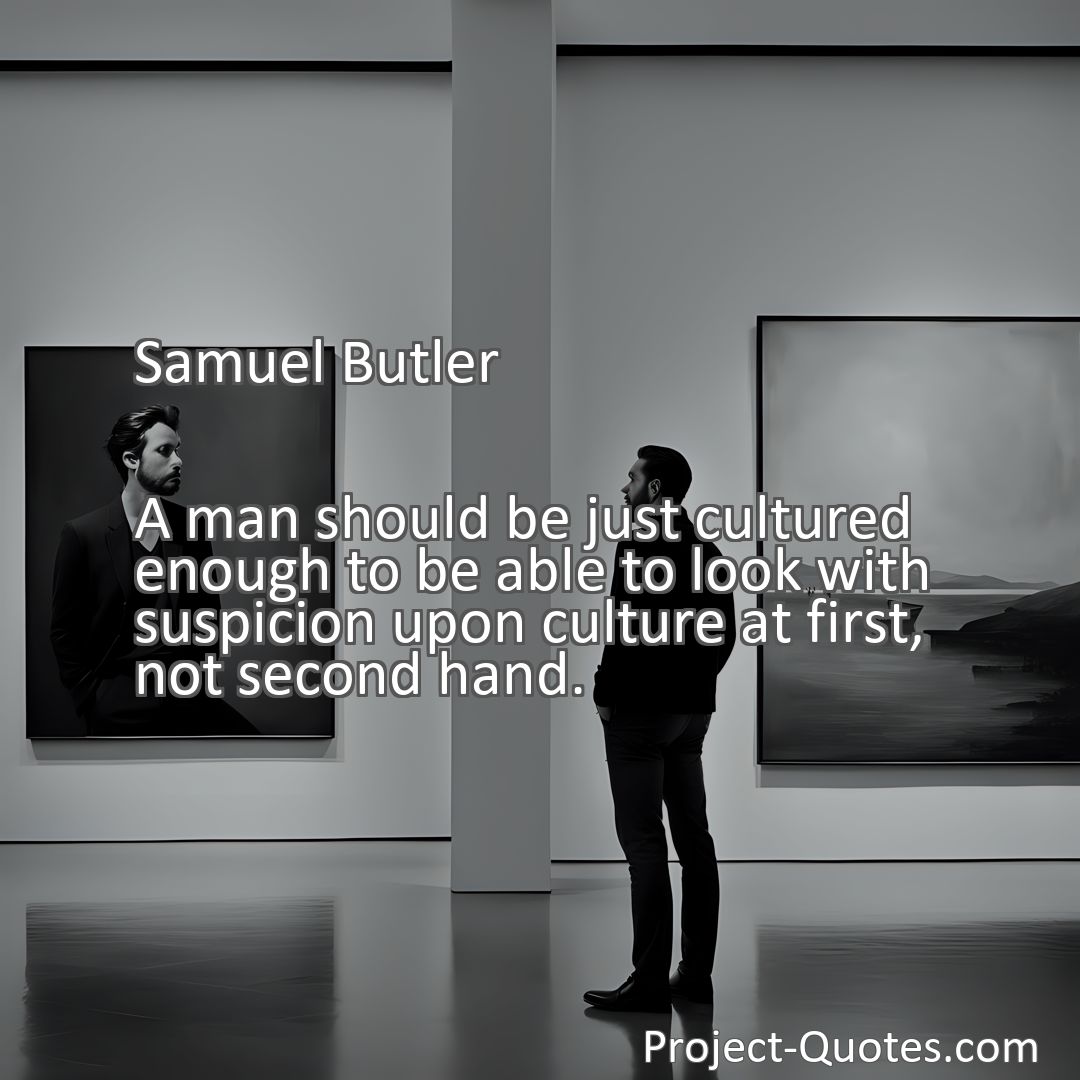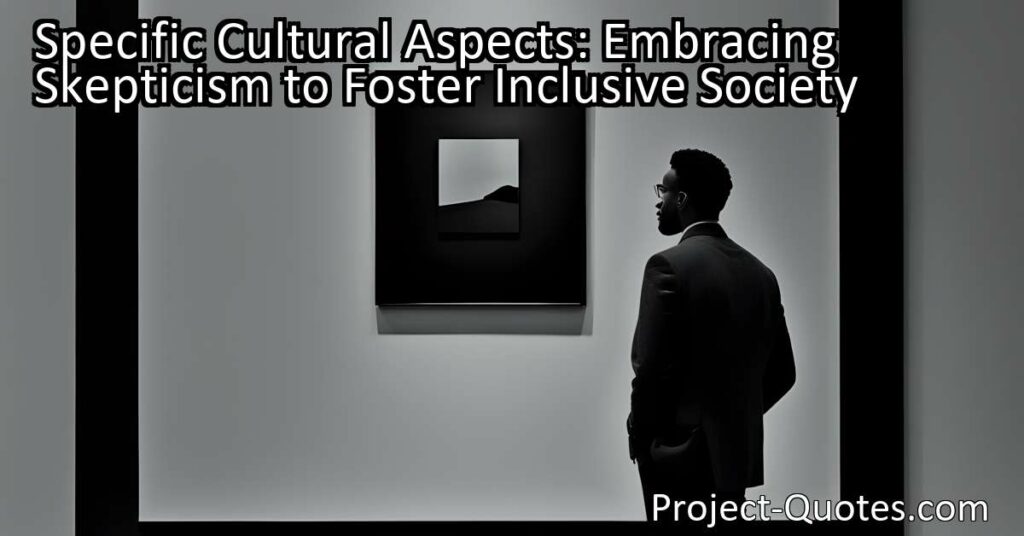A man should be just cultured enough to be able to look with suspicion upon culture at first, not second hand.
Samuel Butler
In order to truly appreciate and understand culture, it is important to critically examine specific cultural aspects. By questioning and challenging commonly accepted norms, we open ourselves up to new perspectives and ideas, fostering personal growth and intellectual curiosity. This approach allows us to avoid superficial understandings of culture and instead engage with it in a more meaningful and inclusive way.
Table of Contents
Meaning of Quote – A man should be just cultured enough to be able to look with suspicion upon culture at first, not second hand.
In his famous quote, Samuel Butler explores the idea that one should approach culture with a healthy dose of skepticism, rather than simply accepting it without question. By urging us to view culture with suspicion initially, Butler implies that we need to develop our own critical thinking skills in order to truly appreciate and understand the world around us.
The notion of being “just cultured enough” suggests that there is a balance to be achieved. It implies that being too deeply ingrained in a particular culture can restrict one’s ability to see beyond its biases and limitations. On the other hand, being completely detached from culture can leave one isolated and unable to fully engage with the richness of human expression.
To fully grasp the essence of Butler’s message, we must first have a clear understanding of what culture means. Culture encompasses a wide range of elements, including art, literature, music, traditions, beliefs, and societal norms. It shapes how we view the world, guides our behavior, and defines our identity. However, culture is not static; it evolves and changes over time. Recognizing this fluidity is fundamental to Butler’s argument.
The act of looking at culture with suspicion at first, rather than second hand, encourages individuals to question the status quo and not blindly adhere to commonly accepted norms. By adopting this approach, we open ourselves up to new perspectives and ideas, allowing for personal growth and intellectual curiosity. It highlights the importance of independent thought and analysis, rather than relying solely on the opinions of others.
Butler’s quote also alludes to the idea that genuine appreciation of culture requires effort and active involvement. Merely acquiring knowledge about specific cultural aspects without critically examining them can lead to a superficial understanding that lacks depth and richness. In order to truly embrace culture, we must engage with it, ask questions, and challenge our own assumptions.
This notion is particularly relevant in today’s interconnected world, where exposure to various cultures is increasingly accessible through the internet and globalization. We have the opportunity to explore and learn about different cultures from around the globe, but we must avoid falling into the trap of cultural appropriation or shallow appreciation. Instead, we should approach cultures with open minds, seeking to understand their complexities and nuances rather than simply using them as accessories or trends.
By viewing culture with suspicion at first, we cultivate a mindset that allows us to critically evaluate its merits and flaws. This is not to say that we should reject culture altogether, but rather that we should be aware of its limitations and biases. Every culture has its blind spots, and by recognizing them, we can strive for a more inclusive and empathetic society.
One potential danger of accepting culture without question is the perpetuation of harmful stereotypes and prejudices. For example, certain cultural norms may contribute to the marginalization of specific groups or reinforce gender roles that limit individual freedom and equality. By looking at culture with suspicion, we can identify these biases and work towards challenging and dismantling them.
Moreover, by embracing a skeptical mindset towards culture, we can also avoid falling into the trap of cultural elitism. This occurs when individuals believe that their own culture is superior to others, leading to xenophobia and ethnocentrism. By recognizing the subjectivity of our own cultural lens, we can foster a more inclusive and respectful environment that celebrates diversity and promotes cross-cultural understanding.
In conclusion, Samuel Butler’s quote implores us to approach culture with skepticism initially, rather than accepting it blindly. By doing so, we cultivate critical thinking skills that allow us to appreciate culture in a more nuanced and meaningful way. Challenging cultural norms and biases is essential for personal growth and the advancement of a more inclusive society. So let us embrace Butler’s advice and embark on a journey of genuine cultural exploration, one that encourages us to question, learn, and evolve.
I hope this quote inspired image brings you hope and peace. Share it with someone who needs it today!


